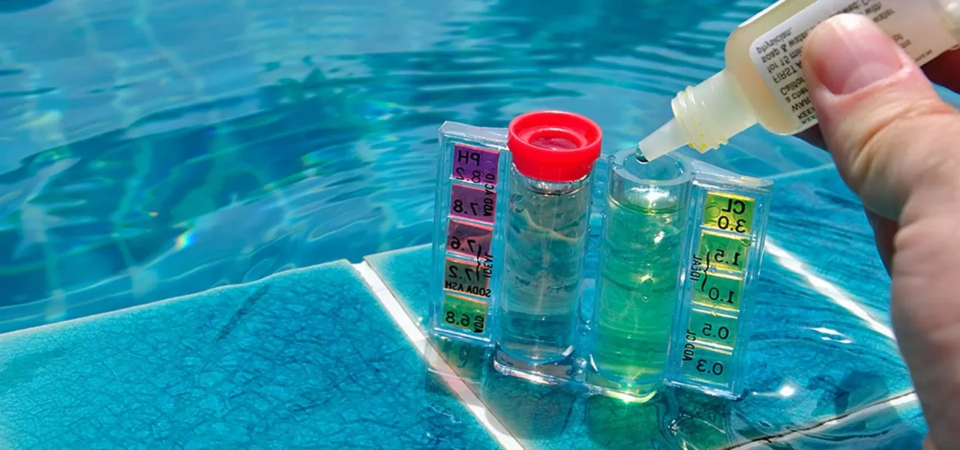In order to maintain a pool in good condition, it is important to ensure that the water can resist the growth of algae, bacteria, and other harmful substances.
To test the pool water, specific parameters need to be considered. For an inground pool, the pH level should be around 7.2, with balanced chlorine levels, optimum calcium hardness, and optimum alkaline levels. If any of these parameters are too high or too low, it can put the inground pool at risk.
Some people may think that cleaning the pool walls and floors with a brush or vacuuming is enough to maintain the pool. However, this is not the case. Without regular pool water testing, the chemical balances in the collection can gradually deteriorate. Therefore, it is necessary to monitor the water quality over time and take appropriate actions when needed.
Contaminants in Inground Pool Water
It is important to maintain a balance of healthy attributes in the pool water, but it is equally important to be aware of potential contaminants and avoid them. While algae are visible and can be easily detected, there are other contaminants that are not visible to the naked eye and require specific tools for detection. These contaminants can still cause damage to the pool, even in their early stages that may go unnoticed.
Calcium Buildup
Calcium buildup is detrimental to the pool, its equipment, and the water itself. It can lead to discolored water and corrosion. If left untreated, the hardened calcium can even damage the pool’s foundation and structure. Regular pool water tests can help identify and prevent calcium buildup.
Copper Buildup
Copper buildup can be detected using similar methods as calcium buildup. It is also harmful to inground pools, causing discolored or murky water, and excessive corrosion. Low pH levels can indicate copper buildup in the water. It is important to ensure that any antibacterial or algae solutions used are copper-free to avoid replacing one problem with another. Swimming pool maintenance crews can test for these elements.
Iron Buildup
High levels of iron buildup in pool water can lead to brown water and rust. Iron levels can be easily tested using appropriate test kits. Regular pool maintenance staff can perform these tests to check iron levels and take necessary actions accordingly.
Florida Pool Patio is a second-generation company that comprises of engineering professionals with a top-notch team. Our team has built a reputation for providing a positive experience and satisfied clientele with the latest technology. Our luxury pool builders in Dade County FL will not settle merely building pools and patios; we want to positively impact the environment and benefit our clients from our knowledge. From construction to maintenance to outstanding customer service, we will never settle for less than the best.

